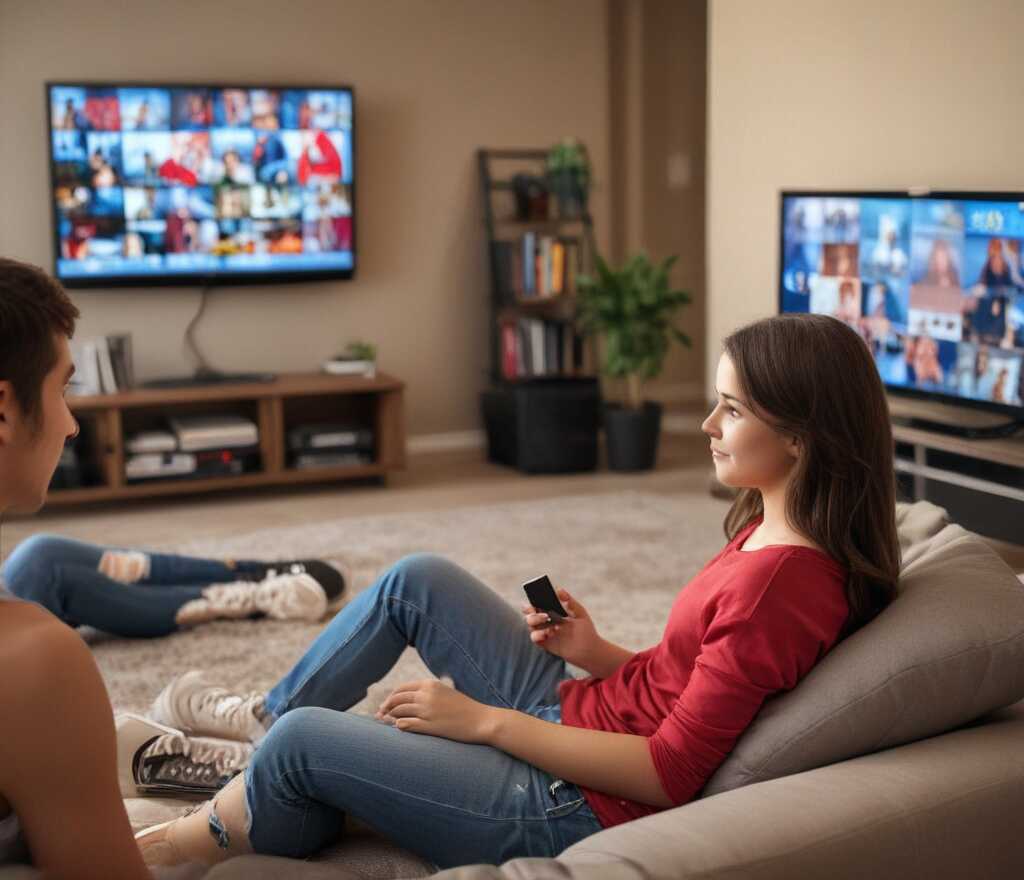
In the modern era, entertainment choices have expanded dramatically, with adolescents having access to an abundance of sports, movies, and TV shows through various streaming services and IPTV subscriptions. See the Best IPTV sub UK. While these entertainment options offer enjoyment and relaxation, they also have a significant impact on adolescent health and lifestyle. In this blog post, we delve into how preferences for sports, movies, and TV shows influence the overall well-being of adolescents, taking into account factors such as sedentary behavior and social interactions.
The Sedentary Lifestyle: A Concerning Trend
One of the most pressing issues associated with adolescents’ entertainment choices is the rise of sedentary behavior. With the convenience of streaming services, it’s easy for adolescents to spend hours sitting in front of screens, whether it’s binge-watching their favorite TV shows or immersing themselves in the latest blockbuster movies. This sedentary lifestyle can have detrimental effects on their physical health.
Research has shown that prolonged periods of sitting and inactivity are linked to a range of health problems, including obesity, cardiovascular issues, and musculoskeletal disorders. Furthermore, excessive screen time can disrupt sleep patterns and contribute to feelings of lethargy and fatigue. While sports offer a form of physical activity, the allure of on-demand entertainment often leads adolescents to prioritize screen time over exercise.
The Influence of Content Consumption
Beyond the physical effects, the content consumed through streaming services can also impact adolescent mental health. Movies and TV shows often depict unrealistic body standards and glamorize unhealthy behaviors such as substance abuse and risky sexual activity. Constant exposure to these portrayals can distort adolescents’ perceptions of themselves and their peers, leading to body image issues and low self-esteem.
Moreover, certain genres of movies and TV shows may contain violent or distressing content, which can have a negative impact on mental well-being. Studies have shown that exposure to violent media can desensitize adolescents to real-world violence and increase aggressive behavior. Similarly, excessive screen time has been associated with higher rates of anxiety and depression among adolescents.
The Role of Social Interactions
While entertainment choices can be enjoyed individually, they also play a significant role in shaping adolescents’ social interactions. Watching sports events or discussing favorite TV shows and movies with friends can foster a sense of camaraderie and belonging. However, excessive screen time can detract from face-to-face interactions, leading to feelings of isolation and loneliness.
Participating in sports, on the other hand, provides opportunities for socialization and teamwork. Whether it’s playing on a school sports team or joining a local recreational league, sports allow adolescents to connect with peers and develop important social skills. Unfortunately, the rise of digital entertainment has led to a decline in participation in physical activities, further exacerbating the issue of social isolation among adolescents.
Finding Balance and Promoting Healthier Habits
In light of these concerns, it’s essential for adolescents to strike a balance between their entertainment choices and their overall health and well-being. Encouraging physical activity and outdoor play can help counteract the sedentary effects of screen time. Parents and caregivers can set limits on screen time and encourage alternative forms of recreation, such as sports and outdoor activities.
Additionally, fostering open communication about media consumption and its potential effects on mental health is crucial. Parents can engage with adolescents in discussions about the content they’re watching and help them critically evaluate its messages and themes. Educators can also play a role in promoting media literacy skills, teaching adolescents to be discerning consumers of media and empowering them to make informed choices about their entertainment habits.
READ ALSO: Nurturing the Future: How Adolescent Health Inspires Guest Posts for General Topics
Conclusion
While sports, movies, and TV shows offer entertainment and enjoyment, they also have a profound impact on adolescent health and lifestyle. By acknowledging the influence of entertainment choices and promoting healthier habits, we can support the overall well-being of adolescents in an increasingly digital world.
Remember, moderation and mindful selection are key to ensuring that entertainment enriches rather than detracts from adolescent health and happiness.
